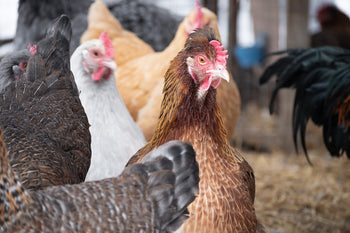Chickens are among the most common domestic animals around the globe, serving crucial roles in agriculture and food production like Đá gà thomo, trực tiếp đá gà thomo. However, their health can be significantly compromised by a variety of diseases that affect both their wellbeing and productivity. Understanding these diseases, their causes, symptoms, prevention, Trực tiếp đá gà and treatment options is essential for poultry farmers, veterinarians, and anyone responsible for chicken care. This article aims to explore the key diseases affecting chickens, helping stakeholders make informed decisions to maintain healthy flocks at redmanwines.com.
 Read more – Các bệnh ở Gà
Read more – Các bệnh ở Gà
Common Infectious Diseases

Infectious diseases in chickens are caused by various pathogens including viruses, bacteria, and parasites. These diseases can spread rapidly within flocks, leading to significant mortality rates and economic losses.
Viral Diseases
Viral infections can lead to severe health issues in chickens and often require strict biosecurity measures to prevent outbreaks.
Avian Influenza
Avian influenza, more commonly known as bird flu, is a highly contagious viral infection that affects various avian species. The virus can mutate, resulting in low-pathogenic or high-pathogenic strains, with the latter causing severe illness and death in infected birds.
Symptoms of avian influenza include sudden deaths, respiratory distress, swollen heads, and a decrease in egg production. Prevention strategies focus on strict biosecurity measures, such as limiting contact between domestic and wild birds and maintaining sanitary conditions in poultry housing. In cases of outbreaks, culling affected populations may be necessary.
Newcastle Disease
Newcastle disease is another devastating viral infection that impacts chickens globally. It is characterized by a range of symptoms, from mild respiratory issues to acute nervous system disorders that can lead to sudden death.
Control measures include vaccination practices and restricting movement between farms. Vaccines are highly effective and should be administered regularly to protect the flock from this disease. Early detection and prompt reporting of unusual deaths can help contain outbreaks quickly.
Bacterial Diseases
Bacterial infections can also severely impact chicken health, causing various illnesses that can be deadly if left untreated.
Salmonellosis
Salmonellosis is a bacterial infection caused by Salmonella enterica, which can be transmitted through contaminated feed or water. Chickens can become asymptomatic carriers, posing risks of transmission to humans through undercooked eggs or meat.
Symptoms in chickens include diarrhea, lethargy, and decreased appetite. To prevent salmonellosis, it is vital to maintain proper hygiene practices, ensure clean water sources, and avoid overcrowding. Infected birds should be isolated and treated using appropriate antibiotics.
Fowl Cholera
Fowl cholera is another significant bacterial disease caused by Pasteurella multocida. Symptoms include swelling of the wattles, respiratory distress, and sudden death in severe cases.
Vaccination is critical in preventing fowl cholera, particularly in areas where the disease is prevalent. Maintaining good management practices, including sanitation and monitoring flock health, will also reduce the risk of outbreaks.
Parasitic Infections
Parasitic infestations can lead to serious health complications in chickens, including weight loss and reduced egg production.
Coccidiosis
Coccidiosis is caused by a protozoan parasite that infects the intestinal lining of chickens, leading to severe diarrhea and dehydration. Young chicks are particularly vulnerable to this disease.
To control coccidiosis, administering coccidiostats in feed and maintaining clean living conditions is essential. Regular health checks can help identify infected birds early, allowing for rapid intervention.
Mites and Lice
Infestations of mites and lice can cause significant discomfort and health issues in chickens. These external parasites feed on blood and skin debris, leading to anemia and skin irritation.
Regular checks for signs of infestation, combined with appropriate treatments like insecticidal powders or sprays, can help manage these pests effectively. Improving coop hygiene and providing adequate space can also reduce parasite loads.
Nutritional and Metabolic Disorders

Aside from infectious diseases, chickens can suffer from various nutritional deficiencies and metabolic disorders that compromise their health and productivity.
Vitamin Deficiencies
Chickens require a balanced diet that includes vitamins and minerals for optimal health. Deficiencies can lead to a range of issues.
Vitamin A Deficiency
Vitamin A is crucial for vision and immune function in chickens. Insufficient intake can result in poor growth, eye problems, and increased susceptibility to infections.
Providing a well-formulated diet along with fresh greens can ensure an adequate supply of vitamin A. Fortified feeds can also serve as a preventive measure against deficiencies.
Vitamin D Deficiency
Vitamin D plays an essential role in calcium metabolism and bone health. A deficiency can lead to weak bones and reduced egg production in laying hens.
Ensuring access to sunlight or using ultraviolet light in indoor facilities can help enhance vitamin D synthesis. Additionally, supplements can be added to the diet to prevent deficiencies.
Obesity and Metabolic Syndrome
Obesity is increasingly recognized as a significant metabolic disorder in modern poultry farming, especially in broiler chickens bred for rapid growth.
Excess body weight can lead to various health issues, including respiratory problems, heart disease, and reduced reproductive performance. Implementing controlled feeding programs and ensuring adequate exercise can help prevent obesity in chickens.
Regular monitoring of flock weight and condition is vital for identifying at-risk individuals and adjusting dietary plans accordingly.
Environmental Stressors and Their Effects

Chickens are sensitive to their environment, and various stressors can significantly impact their health and productivity.
Temperature Extremes
Chickens can experience heat stress in hot weather and cold stress during winter months. Both extremes can lead to decreased egg production and overall poor health.
Creating comfortable living conditions through adequate ventilation and temperature control can help mitigate these issues. It is essential to monitor environmental conditions regularly and make adjustments as needed.
Poor Housing Conditions
Overcrowded or unsanitary poultry houses can contribute to elevated stress levels and increased disease incidence among chickens.
Implementing effective biosecurity measures, ensuring clean living spaces, and providing enough room for each bird can promote better health outcomes. Good housing design prioritizes air quality, temperature control, and sufficient space for movement.
Social Stress
Chickens are social animals, and disruptions in their social structures can lead to stress. Aggression, bullying, and pecking among birds can occur, especially in crowded conditions.
Introducing new birds gradually and ensuring a stable social hierarchy can minimize stress related to social dynamics. Monitoring bird behavior can also help identify issues early on and allow for timely interventions.
FAQs
What are the common symptoms of diseases in chickens?
Common symptoms of diseases in chickens include lethargy, decreased appetite, coughing or sneezing, abnormal droppings, and changes in egg production. Observing any unusual behaviors or physical signs can indicate potential health issues.
How can I prevent diseases in my chickens?
Preventing diseases involves implementing rigorous biosecurity measures, maintaining clean living conditions, ensuring proper nutrition, providing vaccinations as needed, and monitoring flock health regularly.
Can humans contract diseases from chickens?
Yes, some diseases such as salmonellosis and avian influenza can be transmitted from chickens to humans. Proper hygiene, safe handling of poultry products, and cooking meat and eggs thoroughly can minimize the risk of transmission.
What should I do if I suspect my chickens are sick?
If you suspect your chickens are sick, isolate the affected birds to prevent the spread of disease. Consult a veterinarian for a proper diagnosis and treatment plan. Timely intervention is crucial to managing health issues and protecting the rest of the flock.
Are there vaccines available for chicken diseases?
Yes, various vaccines are available to protect chickens from several common diseases, including Newcastle disease, avian influenza, and fowl cholera. It’s essential to work with a veterinarian to determine the best vaccination schedule for your flock.
Conclusion
Maintaining the health of chickens is vital for successful poultry production, requiring awareness and proactive measures against diseases. From understanding infectious diseases and their transmission to recognizing the impact of nutritional deficiencies and environmental stressors, poultry caretakers have a critical role in safeguarding their flocks. By adopting comprehensive husbandry practices, monitoring chicken health consistently, and working closely with veterinary professionals, farmers can reduce disease incidence and promote thriving, productive chickens. Investing in knowledge about diseases in chickens is not just beneficial for individual flocks but also contributes to global food security and sustainability efforts.

